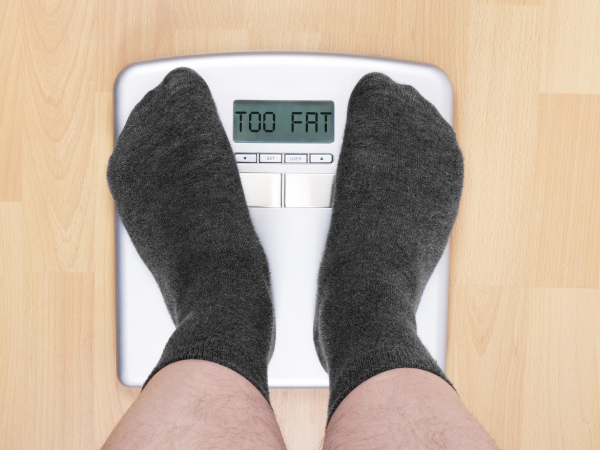What Does the Word ‘Obesity’ Actually Mean?
An obese person is one who is overweight and has too much body fat.
In Kusadasi, a nearby town to the Izmir airport, our finest general practitioners emphasize this as the best and most straightforward definition of what obesity is.
In the UK, 1 in 4 men and women and 1 in 5 children who are 10 or older struggle with obesity.
How Can You Tell if You Are an Obese Patient or Not?
Using your body mass index (BMI), you may determine whether you are overweight or at a healthy weight. BMI calculations are used to determine your healthy weight based on your height. BMI calculators are available online for help in determining weight. What the BMI score represents
- A healthy weight is defined as 18.5 to 24.9 on the scale.
- An overweight person has a score between 25 and 29.9.
- An obese person has a score between 30 and 39.9
- A score of over 40 indicates morbid obesity.
Do not get confused: BMI alone does not diagnose obesity. Because built persons do not have fat, although their BMI may be high. However, BMI can help many people determine whether they are overweight or healthy. Measuring waist size can also be an effective identifier for persons who are overweight or moderately obese and have a BMI between 25 and 29.9 or between 30 and 34.9.
In general, men with a 95 cm waist and women with an 81 cm waist are more likely to develop serious obesity-related issues.

What Risks of Obesity Knock at Your Door?
It can produce life-threatening and serious situations, in addition to its poor bodily impacts and challenges. These major issues begin with:
- Coronary Heart Disease (CHD)
- non-insulin-dependent-diabetes (type II diabetes)
- paralysis (stroke)
- Cancer types include colon cancer and breast cancer.
Additionally, obesity lowers the quality of life and has a negative psychological impact on the majority of people. It may lead to despair and low self-esteem psychologically.
What Are the Major Reasons for Obesity?
Obesity is caused by eating too much sugar and fat, as well as ingesting more calories than you require. If you eat more calories than you need and do not burn them off through exercise, your body will store the extra calories as fat. Fast and cheap food is relatively easy to find in today’s environment, and we live in a hurry. People prefer to spend more time at cafes, bars, and restaurants where there is no physical exertion. We are becoming more sedentary at work by sitting at a desk, at home by sitting in front of a TV/laptop, and even on the street by driving our automobiles everywhere. As a result, obesity is spreading and generating health issues.

Why Does Sitting Make Us Lazier and Unhealthy?
Obesity is easily caused by some hereditary illnesses, such as hypothyroidism. These conditions, however, are treatable with medicine and do not cause weight gain unless they are provoked by sedentary behaviors such as sitting and eating fast and inexpensive meals.
How to Treat Your Obesity, What Is Obesity Definition Is Being Fat?
In order to treat obesity, it’s crucial to engage in regular exercise and eat a balanced diet. Indications for managing your obesity are provided
below:
- First, choose your healthy low-calorie diet after visiting a general practitioner in one of Kusadasi’s top hospitals. (Changing your eating habits can be challenging, but stay patient; you will eventually be rewarded. Keep in mind that you are doing this for your health and a better life.
- Try to avoid situations like eating at a fast food restaurant or your automobile that can lead you to consume more food than you need.
- Start working out by beginning to walk for at least 40 minutes each day and engaging in other accessible exercises. Go to the pool if one is nearby, or take your dog for a stroll if you have one.
- Join a group where you can interact with others who share your issues. You can discuss your feelings, give each other encouragement, and support.
Remember that seeking professional psychological assistance will make you more resilient against overeating if you so choose.
Don’t worry; if changing your life isn’t enough, you can always seek medical attention. Your doctor may prescribe the medication ‘orlistat.’ General practitioners determine which medications will benefit you.
Obese people are advised to lose weight if they have certain medical conditions.
To treat obesity, it’s crucial to engage in regular exercise and eat a balanced diet. Indications for managing your obesity are provided below:
Following health problems of obesity:
- Escalated sweat
- Not being able to do physical activities
- Back and joint ache
- Being asocial
- Apnea
- Snoring
- Feeling exhausted
- Lack of self-confidence

Obesity-Related Diseases That Can Be Life-Threatening
Being overweight is considered obese, which can lead to other major medical concerns. Here are a few examples:
- Non-insulin-dependent-diabetes (type II diabetes)
- Arteriosclerosis and High cholesterol (These diseases cause paralysis (stroke) and Coronary Heart Disease.
- Complications of diabetes, metabolic syndrome.
- Gastroesophageal reflux disease
- It reduces fertility
- Apnea
- Nephropathy (kidney diseases) and hepatopathy (liver diseases)
- Complications during pregnancy like preeclampsia and gestational diabetes.
- High Blood Pressure
- Asthma
- Some types of cancer
- Gallstone
- Calcinosis

Depending on how severe it is, life expectancy is decreased by 3 to 10. According to studies, obesity is the leading cause of death in 12 out of every 100 European countries.



